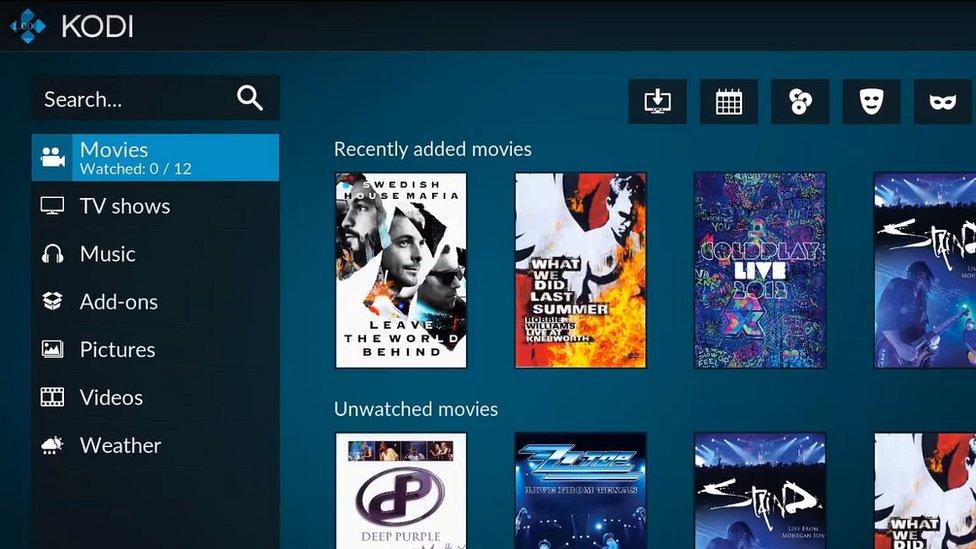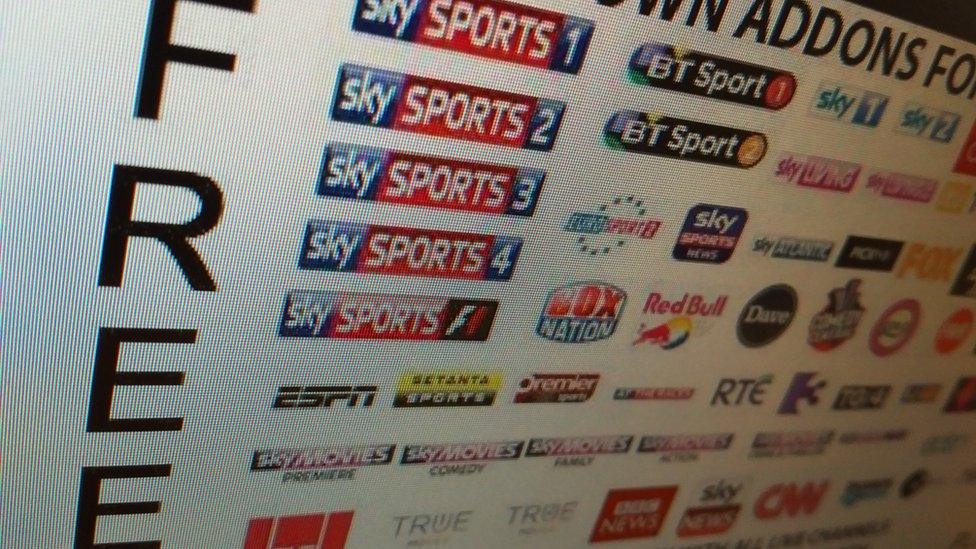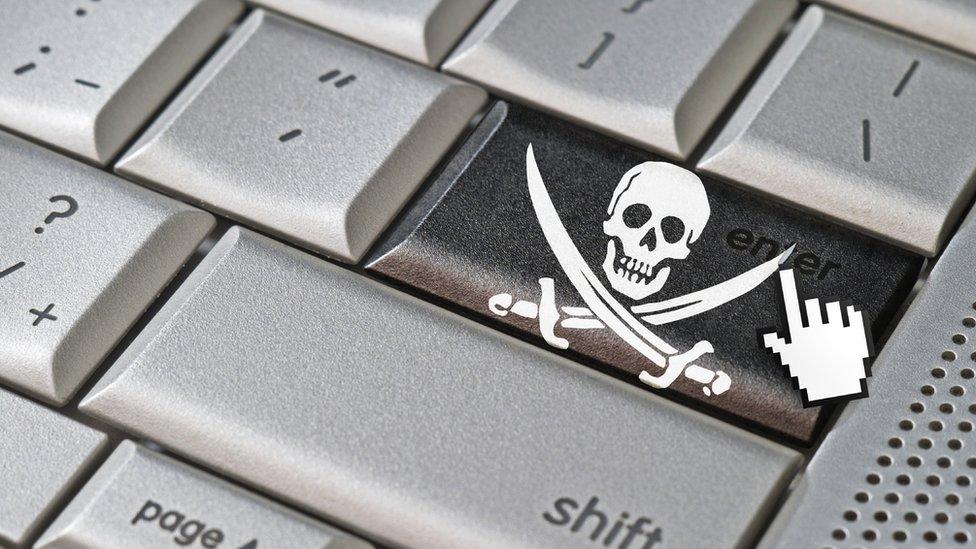Net providers to begin sending 'pirate' emails
- Published

The letters will not tackle the use of software add-ons for Kodi that allow pirated content to be watched
UK ISPs are to start sending "educational letters" to customers identified as downloading copyright material without paying for it.
It is part of the UK government's attempt to crack down on piracy.
BT, Virgin Media, TalkTalk and Sky have agreed to send the missives, which will be emailed rather than posted.
The controversial move has been years in the planning, and some experts believe it is too late to be an effective deterrent.
BT, Virgin Media and Sky will start sending out letters on 17 January, and TalkTalk's campaign will begin at the end of the month.
The BBC has seen a sample letter, which will be headed with the customer's telephone number.
It reads: "Get It Right from a Genuine Site' has got in touch with us.
"Get it Right is a government-backed campaign acting for copyright owners who think their content's been shared without their permission.
"It looks like someone has been using your broadband to share copyrighted material (that means things like music, films, sport or books).
"And as your broadband provider, we have to let you know when this happens."
It then provides a list of the content in question and directs users to a website with "tips and advice on how to stop it happening again".
No delay
The government's plans to crack down on piracy were tarnished by so-called speculative invoicing, in which law firms sent bullying letters to people accused of downloading content, including pornography, free.
The letters threatened court action unless a one-off fee of about £800 was paid.
Many lawyers said such cases could never be proved, because the owner of the broadband connection may not be the same person who had downloaded the content in question.
The plans to send out letters to people identified as net pirates were first agreed in 2014.
Get it Right from a Genuine Site insists there has been no delay to the plans.
"The educational campaign has now been running successfully for over a year with the educational email element beginning during the early part of 2017," said a Get it Right spokesperson.
Get it Right monitors peer to peer networks for illegal downloads.
But many newer forms of consuming content free, such as streaming and cyber-lockers, are not included.
Neither are Kodi add-ons and other set-top box software that allow users to stream pirated movies, sport and TV programmes.
Ernesto van der Sar, editor of piracy news website TorrentFreak, said: "Over the past several years most pirates in the UK have shifted towards direct download and streaming services.
"Since the piracy alerts only target peer to peer sharing, they will have less of an impact today than they would have had a few years ago.
"Due to the relatively small number of notices that will be sent to users and the fact that there are no consequences for getting 'caught', I expect the deterrent effect to be minimal.
"As for the educational part, most pirates are already aware of the legal alternatives.
"They simply have no desire to pay or can't find what they want on authorised channels."
Correction: A caption in this article had indicated that Kodi itself was illegal, but was meant to refer to controversy over third-party add-ons for the platform that provide access to pirated content. Kodi itself is free software designed to let users access legally owned videos, music, games and other media in a single location.
- Published29 September 2016

- Published19 February 2016
